#Pernell Walker
Photo
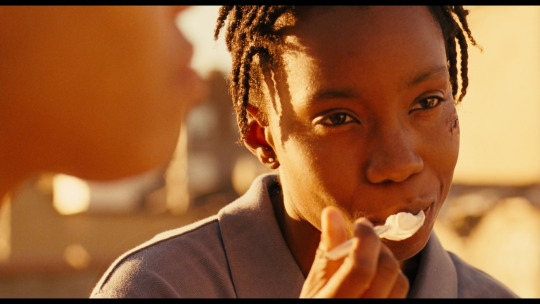
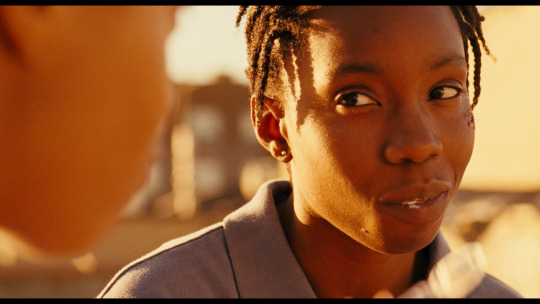

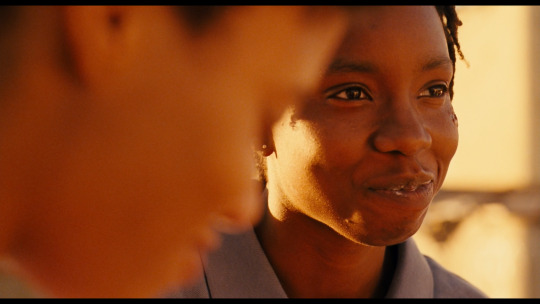


Pariah, Dee Rees, 2011
160 notes
·
View notes
Text

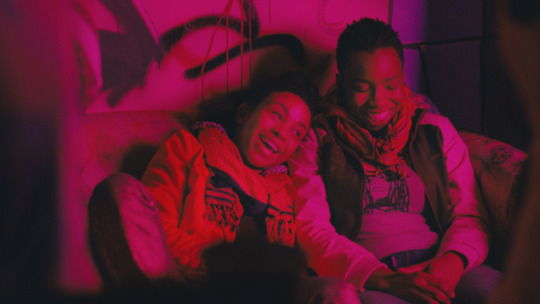
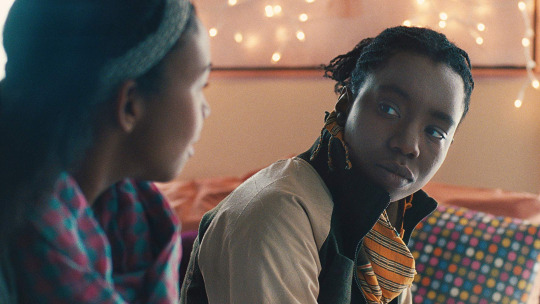
Pariah (Movie)
2011 movie.
Drama, Indie.
Written and directed by Dee Rees.
Plot points:
Coming out.
Coming-of-age.
Teenage stud/butch existence.
Embracing identity.
Sexual expression.
Friendship.
Familial relationship.
Queer black social scene.
Homophobia (verbal and physical attacks).
Black sapphic couples (primary).
Black sapphic characters:
Alike (Adepero Oduye)
Laura (Pernell Walker)
Bina (Aasha Davis)
Connections:
Alike x Bina (black sapphic)
Sex & Nudity - Mild
Sex toys.
Nudity in a strip club.
Violence & Gore - Moderate
Verbal homophobic slurs used.
Physical altercations (two counts).
Profanity - Moderate
Swearing (f-word, s- word, bitch).
Homophobic slurs.
Alcohol, Drugs & Smoking - Moderate
Smoking: Joints.
Alcohol: Social drinking.
Frightening & Intense Scenes - Mild
A physical altercation after a character's coming out.
A family argument that turns violent.
#pariah#2010s movie#black butch#black lesbian#coming out movie#new york city#dee rees#female director#adepero oduye#pernell walker#aasha davis#coming of age#coming out#teenage black butch#teen butch#homophobia#alike x bina#queer coming of age#gay club#main black sapphic couple#black sapphic couple#blacksapphiccouple#blc#movie#stud#stud woman#black masc#black masc women
27 notes
·
View notes
Video
youtube
PARIAH (2011)
Grade: B-
Fantastic coming of age with a tight script that doesn't waste a second. Also, the budget looked bigger than it was probably. Lighting was good. Loved the ending.
#Pariah#2011#B#Indie Films#Small Budget#New York City#Coming of Age#High School#Dee Rees#Brooklyn#Teenager#Heartbreak#Romance#Dating#Family Drama#Adepero Oduye#Kim Wayans#Pernell Walker#Aasha Davis#Charles Parnell#Sahra Mellesse#Zabryna Guevara#Shamika Cotton#Jeremie Harris#Kim Sykes#Coming Out#Lesbian#A24#Try This#Recommend
4 notes
·
View notes
Text
Bengiyo's Queer Cinema Syllabus
For those who are not aware, I have decided to run the gauntlet of @bengiyo’s Queer Cinema Syllabus and have officially started Unit 1: Coming of Age Post Moonlight.
The films in Unit 1 are: Pariah (2011), Get Real (1998), Edge of Seventeen (1998), My Own Private Idaho (1991), and Mysterious Skin (2004)
Today I will be writing about
Pariah (2011) dir. Dee Rees
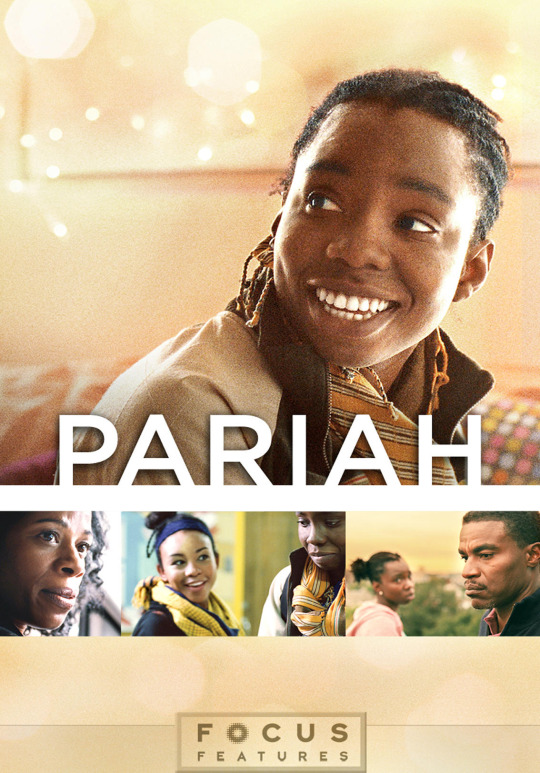
[Available on: Amazon, YouTube Rental, Run Time: 1:26]
Summary: A Brooklyn teenager juggles conflicting identities and risks friendship, heartbreak and family in a desperate search for sexual expression. (from IMDB)
Cast:
Adepero Oduye as Alike (pronounced Ah-Lee-Kay)
Aasha Davis as Bina, Alike's love interest
Charles Parnell as Arthur, Alike's father
Kim Wayans as Audrey, Alike's mother
Pernell Walker as Laura, Alike's best friend
Sahra Mellesse as Sharonda, Alike's younger sister
Overall Thoughts (this write up is longer than my The Birdcage one because this time I actually took notes)
I LOVED THIS FILM. I am so intrigued by the layers this film builds for itself. If there was one phrase that came to mind while I watched this film it would be “code-switching.” Not in the traditional way it would relate to language and linguistics, but in the way that there is code and there is switching. Because there are so many levels of change and obfuscation in this film from the clothing to the queer flagging to the thinly veiled threats. Before I get too far in to this, let’s do a quick analysis of the main character’s name
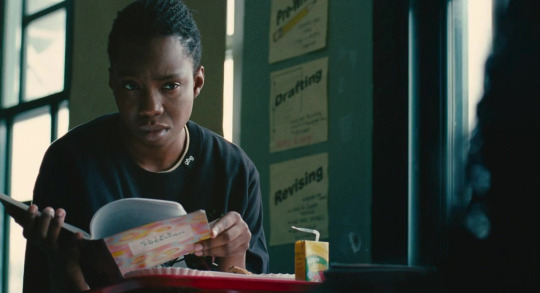
Alike Freeman.
Alike- Origin: Nigerian, Meaning: “girl who drives out beautiful women” (at least according to babycenter)
Freeman- I mean…I feel like this one is pretty self-explanatory. But it is very very intentional.
The film opens in a lesbian club, showing Alike wearing baggy, masculine clothing. On the bus ride home, she changes into a more femme style. And here we have the first switch. With her friend, out on the town, in the dark (look, Ben! I haven’t even seen this show yet, but I knew you were gonna pop in here with the link so I figured I would get ahead of it) Alike is free to be herself. To be openly, purposefully queer, to code herself that way. But the same cannot be said at home, where she is still in the (glass) closet. Second switch occurs when Alike leaves the house wearing more feminine clothing, and changes to more masculine clothing when she gets to school.
We see the first code soon after when Alike spends her lunch period in her English teacher’s classroom. (This is how you know the story was written by a lesbian). We see her full name for the first time written on the cover of her journal. Alike Freeman. What a wonderful name for someone who is not free to be herself in all parts of her life. The second code we see established around the dinner table and on the basketball court. The way this family interacts with each other, there is the push and pull between honesty and secrecy, control and lack of it, respect and disrespect, and the love you feel coming from these characters is palpable, but there is an undercurrent of understanding that this love may be conditional.
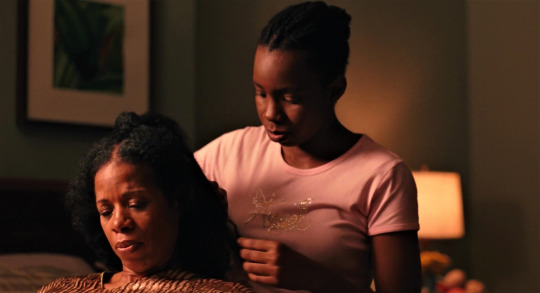
Audrey is interesting as a character because you know that she knows, and you know that she is trying to pretend like she doesn’t see it, and you know that she is (again, coding) trying to not-so-subtly “correct” her daughter’s behavior through the clothes that she buys her, through the disdain she has for Laura, by not letting Alike close the door when Laura is in her room, through telling Alike “God doesn’t make mistakes”. And the way that Audrey is lonely and isolated within the context of her family, within the social groups at work, because she is so internally focused on trying to stop her daughter from being gay that she has neglected every other connection in her life.
We get another semi-code with the conversation in the hallways between three girls, one of whom says: “Some of them AGs are cute, I’m not saying I would, but I’ll holla” \\ “I’m not gay, but if i was gay, I’d talk to [Alike]” \\ “I like girls, I love boys” while making occasional eye contact with Alike across the hallway or walking right past her. The girl is letting Alike know she’s interested while still trying to maintain both the illusion of straightness and disinterest.
Audrey connects Alike with the daughter of the literal only person she talks to in her office (read: her only trusted person) in the hopes that Alike will act more like a “lady”. While at first glance, we understand Audrey’s intention, we get yet another code from Bina that this plan may backfire for Audrey…when Bina mentions the English teacher. Queer. Coding.
I loved the way that everyone knew, everyone knows that Alike is queer, and they just. won’t. talk. about. it. I love the way this film shows the very hard lines of allyship (yet another switch). When a butch lesbian comes in to the barbershop and is being harassed by his friends, Arthur stays silent. When she leaves, Arthur gently calls out his friend. When Arthur’s friend calls Alike a “bull-dyke” he’s ready to throw hands. No one is willing to risk a fight with their friends when they are being shitty to a queer no one knows or cares about. Another code, this time from Arthur to Alike comes after his friend makes yet another homophobic, and vaguely threatening comment about his daughter while she is inside the store, when he says “you know you’re daddy’s girl, right?”. She is safe to be herself with him. His love for Alike is unconditional…unlike her mother’s.

I loved the way Alike’s caterpillar poem related to queerness, to closeted queerness in particular. The way the caterpillar felt trapped and suffocated in the dark cocoon, the way that Alike feels trapped and suffocated in the closet as she develops in to herself, as she develops in to her adulthood, as she develops in to her queerness.
I am obsessed with the way that Arthur codes his conversation with Alike as he attempts to coax her in to coming out to him when they are alone, at night, in the dark. I mean, just!! He starts to try to bring it up, bails, skirting the conversation to ask about school instead, Alike knows what’s up, and having complicated feelings around her first kiss, she starts asking her father for advice, keeping pronouns out of the conversation, slowly building to the moment where she is going to come out to him, and he knows it, and she knows it, and Arthur just…interrupts her to start asking questions about “him.” He adds he/him pronouns in to the conversation, and he walks away continues the conversation where Alike cannot see his face, and where he cannot see hers. Because he can’t handle that conversation, because he knows how deeply rooted Audrey’s homophobia is, because the second he hears her say that, he knows that he has lost his daughter. And so instead, he sends her vague and coded messages with his questions around the women’s club, and it being bad news, and to not be associated with it. Because again, if Alike comes out, he knows that he will lose her. So he steers the conversation the way it needs to go where he can equivocate to his wife, telling her that Alike told him she has a boyfriend (because she didn’t correct him when he started adding he/him pronouns to his questions about a crush).
I loved that Bina, a femme character was constantly the one initiating intimacy, while Alike, a masc character was constantly second guessing and then eventually bailing on initiating intimacy, and I loved that Bina is the one who decided she couldn’t handle admitting that she was queer while having sex for the first time helped Alike get over her hand ups. It felt subversive to me this way.

I LOVED LAURA. I think she 300% deserves better, but I loved that despite the fact she struggles, despite the fact that she was disowned, despite the fact that she acts tough (and is tough) she is so compassionate, so caring. She lets other homeless queers sleep in her sister’s apartment for the evening so they have a safe and secure roof over their head, she got her fucking GED, she reached out to her mother despite being the one abandoned by her, and she took Alike in after her mother beat her for being gay despite the fact that Alike kept blowing her off in order to follow her feelings for Bina. Laura is a community pillar and we love and support and cherish community pillars in the house.
I loved that while we get this initial eruption, and an acute burst of pain when Alike comes out, and her mother attacks her, the very next day Alike is in the light, watching the birds, being treated with softness and kindness, smiling and eating ice cream. I like that the loss of Alike’s presence in the family was palpable, that Audrey is clearing out the kitchen in the dark, that the Freeman’s are eating in the dark, and that Arthur reaches out to Alike in the light.

I loved that Alike makes it clear that she isn’t running. I like that I don’t feel like Alike is suffering here, the people who lose are her family, the person who loses the most is her mother. Alike still maintains a relationship with her father and her sister, and following in Laura’s footsteps, she tries to extend the olive branch to her mother. But her mother cannot do it. I love queer kids reaching out to their parents, and it is important to me to see that pain that comes from loving your parents unconditionally and finding they cannot do the same for you in return.
I don’t have anything I really want to say about the ending, because it was perfect and the script speaks for itself

“Your mother would always pick you up, your mother would always pick you up…you remember how we always used to race when it rang-” \\ “I got accepted in to an early college program…” \\ ‘I’m sorry I let her hurt you, you can always come back home. Things are gonna be different, I promise.” \\ “I’m not running, I’m choosing. I’m not going back home.” \\ “I know.” \\ “And you should tell Mom she was right, God doesn’t make mistakes.” \\ “You should tell her yourself.”
The way this moment punched me in the gut? Knowing that I was watching a father trying to bring his baby home and realizing that he is facing an adult who has been freed instead.
And on the subject of freedom, I am incredibly moved by the finally lines of the film:
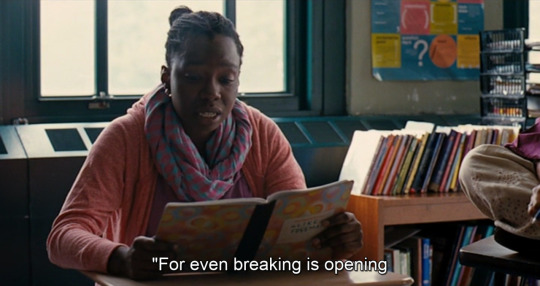
“For even breaking is opening. Broken to the new light without pushing in. Open to the possibility within pushing out. See the love shine in through my cracks. See the light shine out through me. I am broken. I am open. I am broken open. See the love light shining through me, shining through my cracks. Through the gaps. My spirit takes journey, my spirit takes flight. Could not have risen otherwise, and I am not running. I am choosing. Running is not a choice from a breaking. Breaking is freeing. Broken is freedom. I am not broken. I am free.”
Where Does This Film Fall in My By, For, About Queers Categorization?
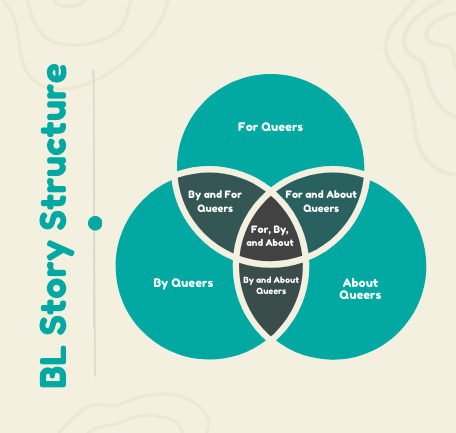
THE GAY TRIFECTA
The writer/driector, Diandria “Dee” Rees, is a lesbian and describes Pariah as “semi-autobiographical"
Favorite Moment
I wouldn’t say there was a particular moment that stood out above the others as my favorite, because it was all incredible, but I will say that my favorite visual element that was employed was the use of lighting. When Alike is in queer spaces, her world is awash in vibrant and varied colors. In the privacy of her room she is bathed in red light, when she is being comforted by Laura after the fight with her mother, she is bathed in blue.
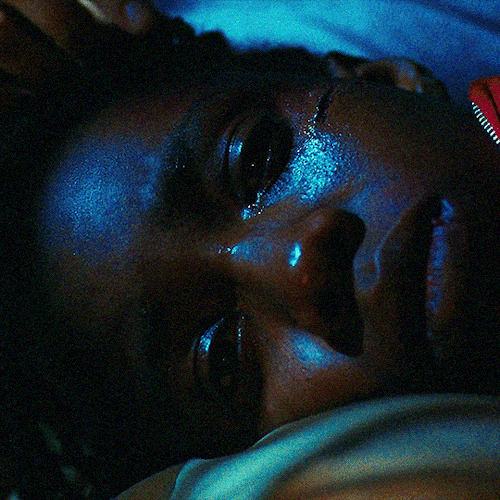
10/10 Film
41 notes
·
View notes
Text
Pride 2024 - Day 17

Movie: Pariah
Made in: 2011 – Set in: 2011
Starring: Adepero Oduye, Sahra Mellesse, Pernell Walker, Aasha Davis, Kim Wayans, Charles Parnell, Shamika Cotton
Rated R for: Language, sexual content, brief drug use and brief violence
Alike is a teenager who is forced to be someone she’s not by her mother and hides the fact she is a lesbian from her parents. When Alike’s mother presses her to befriend a colleague’s daughter, a friendship between them grows to a surprising outcome.
It’s a movie that shows being a teenager experiencing sexuality and wanting to find love, while also being afraid to get comfort or help form her parents. It shows what being a gay child to a religious parent can be like and how sometimes you just have to walk away from things that hurt you.
Spoilers under Keep Reading Line
No one dies in the movie, but Alike is physically attacked by her mother in one scene.
This movie shows what it’s like to be lesbian in an area that isn’t accepting of them. I liked Alike and how she wasn’t just a push-over and only gave in when it seemed nothing else would work. I felt sorry for her with how controlling her mother was and could understand why she’d keep so many secrets from her mom. Alike’s friend, Laura, wasn’t welcome with her own mother or Alike’s and I feel like that is because she’s a lesbian. Which would be another reason of hesitation from Alike. I felt sorry for the both of them and could understand the choices they made. I feel like Laura might have been in love with Alike? She didn’t really act like it as she tried to get Alike a girlfriend, but at times seemed almost jealous when Alike actually liked a girl. Alike’s mother was very hard to like at times as she forced Alike to be someone else and do things she clearly didn’t want to do. Though sometimes I wonder how much of her controlling nature was from her crumbling marriage and a need for control in her life. The movie hits you in the gut when Alike tells her mother she loves her and doesn’t get it said back. Parents should be accepting of their children and love them and it made me feel for Alike that she didn’t get that from her mother.
Mom’s Thoughts: This movie has been called by some reviewers “the female Moonlight.” I think this film had much deeper character development than Moonlight, possibly because it didn’t try to cover as great a time span as Moonlight and showed more of the character making choices rather than just taking what life threw at her. It is a coming-of-age, family drama story, very thought provoking and gives the audience an idea of what it is like for a young lesbian to explore her identity and her place in her family and community. I liked the fact that Alike (pronounced Ah-LEE-kay), or Lee, has her friend Laura whom she can confide in and get guidance from since her mom isn’t someone she can get unconditional love from. I felt sympathy for both Laura and Alike because neither had a mother who accepted them for who they are or loved them unconditionally. As a mother I could never shut out my child, no matter what. At the end Lee leaves home to stay with Laura after her mother attacks her. Her father goes to see her and she tells him she isn’t going back home. She’s been accepted into a school program that will help her attain her personal dreams. He thinks she’s running away. She tells him she’s not running away, she’s choosing. I liked that she had agency, made choices for herself and stood up to her mother, something I thought Chiron lacked in Moonlight. Also, I liked that her father seemed to accept her for who she was, not what he wanted her to be. I would watch this film again, perhaps to be able to pick up more of the story that I missed the first time through.
0 notes
Text




Pariah (2011)
59 notes
·
View notes
Text





Pariah (2011) - dir. Dee Rees
A Brooklyn teenager juggles conflicting identies and risks friendship, heartbreak, and family in a desperate search got sexual expression.
my letterboxd: evagr
#pariah#dee rees#adepero oduye#pernell walker#aasha davis#drama#cinema#film#movie#kim wayans#charles parnell#2011
57 notes
·
View notes
Photo

Pariah
directed by Dee Rees, 2011
67 notes
·
View notes
Photo









Pariah (Rees, 2011)
#pariah#dee rees#adepero oduye#oduye#aasha davis#charles parnell#kim wayans#pernell walker#cinema#film#america#usa#new york
10 notes
·
View notes
Video
youtube
Pariah (2011)
directed by Dee Rees
A Brooklyn teenager juggles conflicting identities and risks friendship, heartbreak, and family in a desperate search for sexual expression.
#pariah#dee rees#movie#sapphic#sapphic art#sapphics in art#sapphic movie#wlw#wlw art#wlw movie#Adepero Oduye#Pernell Walker#Aasha Davis#Charles Parnell#Sahra Mellesse#movies
34 notes
·
View notes
Photo










Pariah (2011)
Director - Dee Rees, Cinematography - Bradford Young
“Heartbreak opens onto the sunrise for even breaking is opening and I am broken, I am open. Broken into the new life without pushing in, open to the possibilities within, pushing out. See the love shine in through my cracks? See the light shine out through me? I am broken, I am open, I am broken open. See the love light shining through me, shining through my cracks, through the gaps. My spirit takes journey, my spirit takes flight, could not have risen otherwise and I am not running, I am choosing. Running is not a choice from the breaking. Breaking is freeing, broken is freedom. I am not broken, I am free.“
#scenesandscreens#dee rees#adepero oduye#kim wayans#aasha davis#bradford young#charles parnell#pernell walker#sahra mellesse#Pariah
18 notes
·
View notes
Photo










#Adepero Oduye#Pernell Walker#dee rees#Pariah#femslash#Alike#Laura#sine's edits#long post#sine: cinema#pariahedit
5 notes
·
View notes
Photo




30 Day Count Down to first half of Unbreakable Kimmy Schmidt Season 4!
05/30/2018 - 8 Days away!!!
#unbreakable kimmy schmidt#kimmy schmidt#ellie kemper#Vonda#Pernell Walker#30 day count down#8 days!!!#i don't own shit#my edit#my edits#my gifs#my gif#my gif set#my gifset#gifs#gif#gif set#gifset
5 notes
·
View notes
Photo










The Deuce - Season 1, Episode 8 “ My Name is Ruby”
#The Deuce#The Deuce HBO#TV Show#70's#James Franco#Maggie Gyllenhaal#Margarita Levieva#Gbenga Akinnagbe#Chris Bauer#Lawrence Gilliard Jr.#Natalie Paul#Chris Coy#Gary Carr#Michael Rispoli#Daniel Sauli#David Krumholtz#Method Man#Pernell Walker#Dominique Fishback#Mustafa Shakir#Saul Stein#Don Harvey#Emily Meade#Matthew James Ballinger#Tariq Trotter#Kayla Foster#Anwan Glover#Jamie Neumann#Thaddeus Street#Olivia Luccardi
22 notes
·
View notes
Photo


Pariah @ the Capitol Theater
w/ Maiden Dir. Emily Esperanza / 2017 / US / 13 mins
34th Annual Olympia Film Festival
#pariah#2011#film#movies#at the movies#ofs#off34#olyfilmfest#olympia film society#olympia film festival#capitol theater#emily esperanza#maiden#46/52#52FilmsByWomen#52 films by women#Dee Rees#Adepero Oduye#Pernell Walker#Aasha Davis#Charles Parnell#Sahra Mellesse#Kim Wayans#Shamika Cotton
2 notes
·
View notes
Text

Pariah (2011)
24 notes
·
View notes